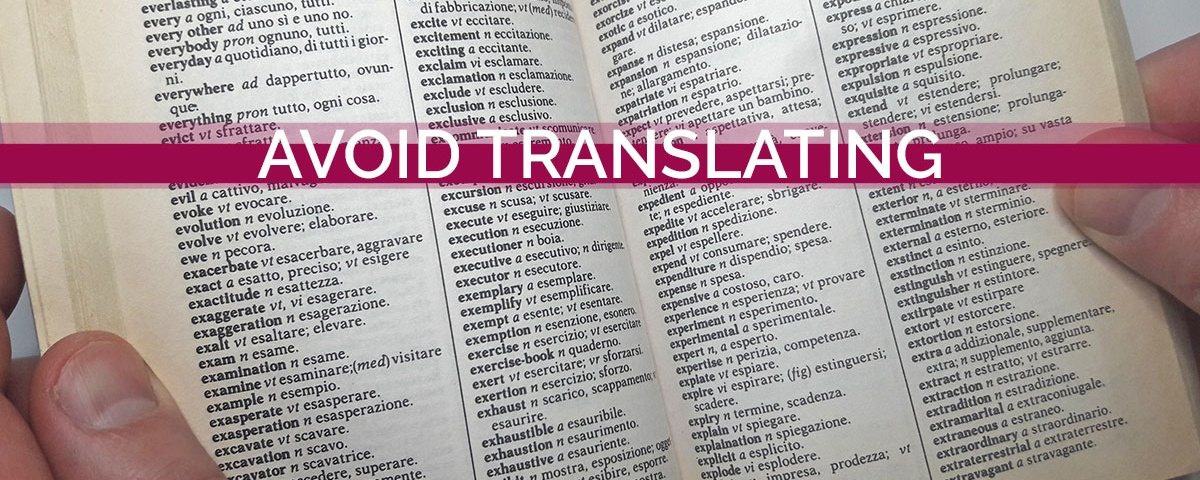
The order of adjectives in English
19/01/2021
Anglicisms in German
27/05/2021V
ery often when we read a text in a foreign language and we come across a word that we do not know, our first reaction is to look in a bilingual dictionary and find the translation of the word .
Unfortunately, this is not the most effective way of expanding our vocabulary and memorising a foreign word. In fact, if we don't analyse the word, making a conscious effort to try and understand its meaning, as soon as we have looked it up in the dictionary and understood what it means in our mother tongue, we have already forgotten it. Before rushing to a bilingual dictionary (or even worse, Google Translator) to look up the translation of the word in your mother tongue, try to consider other strategies that I will outline in this blog post.
Unfortunately, this is not the most effective way of expanding our vocabulary and memorising a foreign word. In fact, if we don't analyse the word, making a conscious effort to try and understand its meaning, as soon as we have looked it up in the dictionary and understood what it means in our mother tongue, we have already forgotten it. Before rushing to a bilingual dictionary (or even worse, Google Translator) to look up the translation of the word in your mother tongue, try to consider other strategies that I will outline in this blog post.
Always note down new words

F
irst of all, it is essential to keep track of new words that you do not know and that you encounter whilst reading a text, listening to a podcast or taking part in a conversation. To do this, I recommend that you immediately write them down in the foreign language in a notebook (or on a memo on your mobile phone for those who are more tech-savvy) and then, at the end of the day, review them to write them down in your vocabulary notebook and learn them. In another post on vocabulary expansion we looked at several tips for memorising new words.
However, the problem is that very often if you do not see the word written down because you have just heard it, you do not know how to spell it and it becomes difficult to note it down. I recommend that you transcribe the sound of the word in a notebook. To do this, you don't have to use the phonetic alphabet, which is certainly unknown to most people: simply write down the sound of the word in the way you prefer, just to try to reproduce it to someone with good knowledge of the foreign language and who can then help you write it down so that you can analyse it and understand it.
However, the problem is that very often if you do not see the word written down because you have just heard it, you do not know how to spell it and it becomes difficult to note it down. I recommend that you transcribe the sound of the word in a notebook. To do this, you don't have to use the phonetic alphabet, which is certainly unknown to most people: simply write down the sound of the word in the way you prefer, just to try to reproduce it to someone with good knowledge of the foreign language and who can then help you write it down so that you can analyse it and understand it.
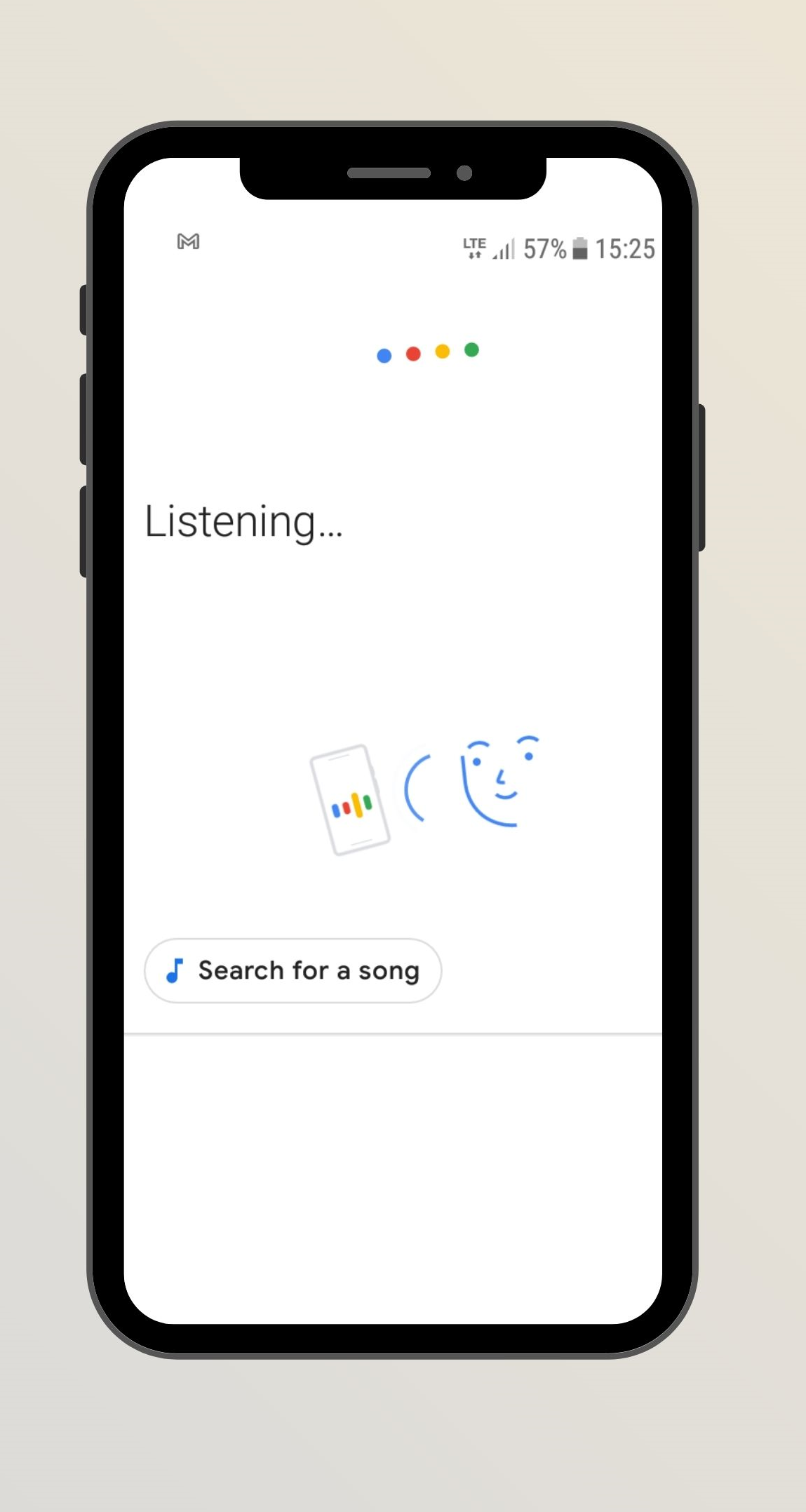
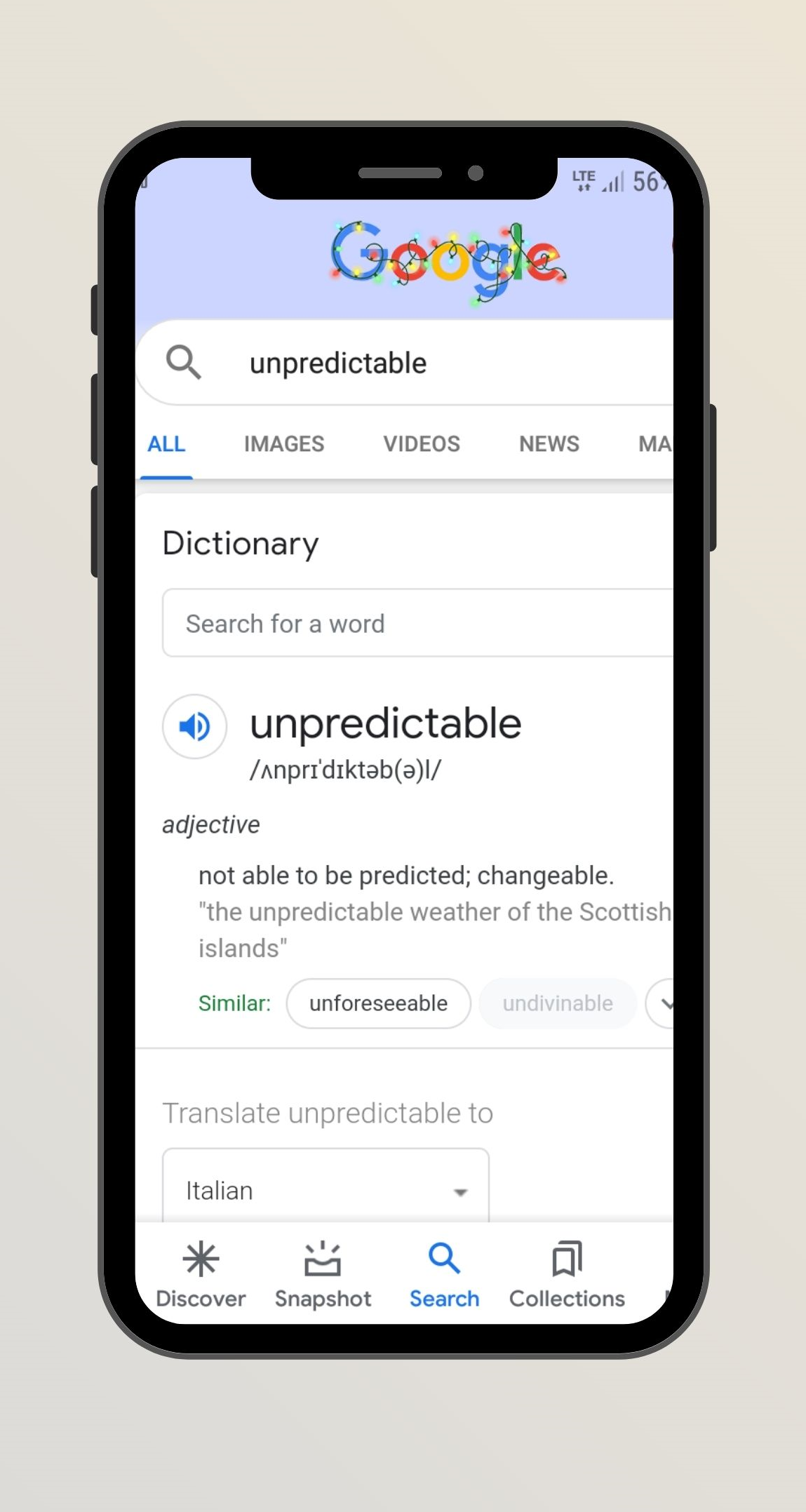
Another possibility at your fingertips is your smartphone. Set the language on your phone to the foreign language you are learning, click on the microphone in the Google search mask and say the sound of the mystery word out loud. If your pronunciation is good, Google will recognise the word and display the definition.
I like this Google function and I find it very useful, but, as you may have guessed, I don't believe in the help that could be possibly provided by Google Translator.
I like this Google function and I find it very useful, but, as you may have guessed, I don't believe in the help that could be possibly provided by Google Translator.
What should I do when I do not understand the meaning of a word?
N
ow that you know how to spell the 'mystery word', you must understand what it means. With my students, when during our class we come across a new word in a reading or listening comprehension exercise, I never immediately give them the translation of the word but I encourage them to apply one of the following strategies.
1 - Definition
We can look up the new word in a monolingual dictionary and read the definition of the word to understand its meaning. This will also help us to understand the grammatical category of the word (noun, adjective, verb, adverb...) in case we no longer have the context because we do not remember it or because we did not write it down or we do not understand it clearly. Exactly as in our mother tongue, the definition of a term in the foreign language will help us to understand its meaning.


2 – Synonyms and antonyms
We can also look for synonyms or antonyms (i.e. opposites) of the word in question to try to understand its meaning. In fact, we may already know the opposite adjective or a synonym of an adjective of which we want to discover the meaning.
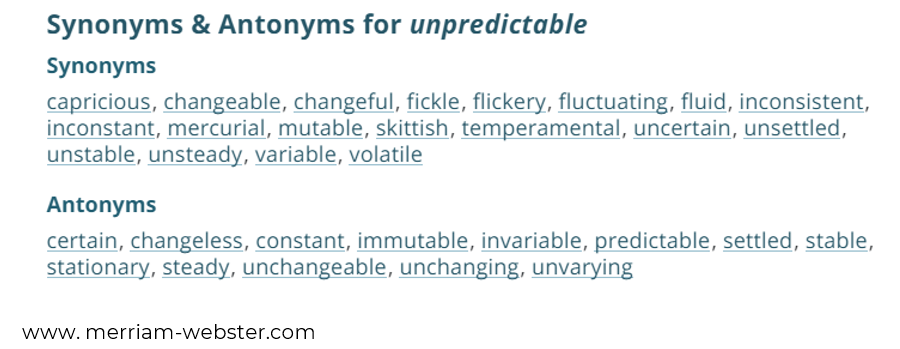
3 - Word families
In order to understand the meaning of the word we do not know, it may also be useful to understand if the term comes from other words we may already know. Remember that very often a noun can derive from a verb, an adverb from an adjective and a negative adjective from a positive one..
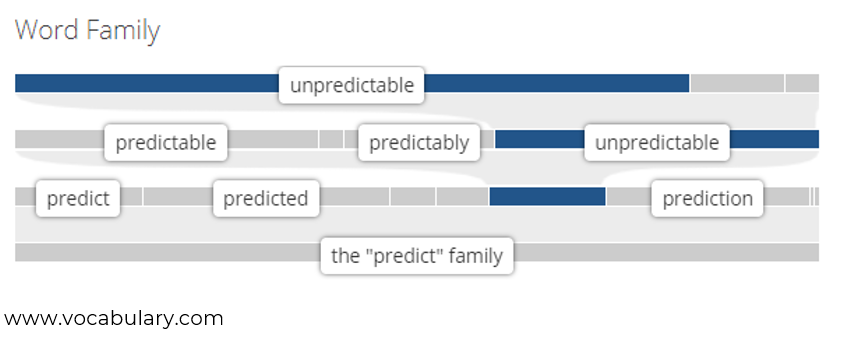
4 – Example in context
Another good strategy is to try to carefully analyse the text in which we have found the new word and focus on the context in which it is used or to search for the word in a search engine to see its use in a context. Thanks to the context we could infer the meaning of the word which we could then verify in a monolingual dictionary to confirm our intuition..

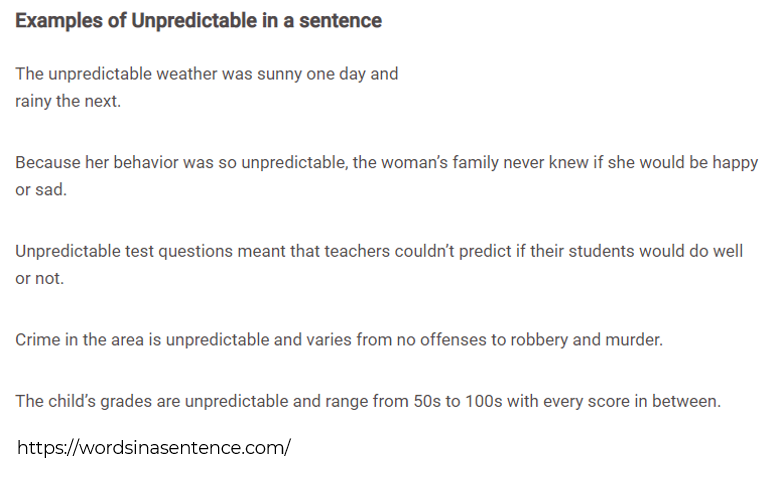
5 - Translation
Translation should always be our last resort. Surely we might think that finding the translation of the mysterious word in our mother tongue is the easiest thing, but we must instead remember that many terms often do not have a unique translation and that sometimes it can be more difficult to find the right equivalent in our language than simply understanding the meaning of the term in question.
We should consider translating a term that we do not understand only if, after searching for the definition and analysing sample sentences, we still cannot fully grasp the meaning of the word or the nuance in meaning compared to a hyponym (a word with a wider and more comprehensive meaning). We could also use the translation provided by a bilingual dictionary just to confirm our intuition or to transcribe the word in our notebook or to create flashcards.
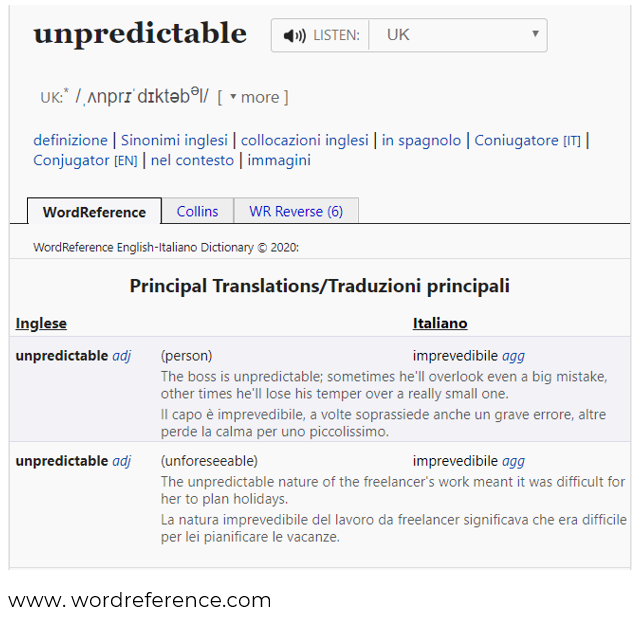
I
hope these few strategies will help you. They have been helpful for me as a student and I can see that they are helpful for my students too!

